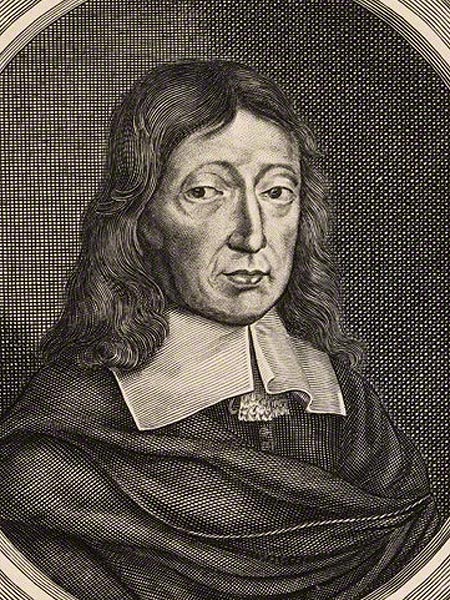 |
| John Milton (Wikipedia) |
Note: John Milton was a genius with languages, which earned him the reputation of being second only to Shakespeare as an English poet. Let's look at his career in literature and civil service.
Get Ready: Can you ever imagine Satan (the Devil) as a sympathetic figure? Why or why not?
John Milton (1608-1674) has rightly been called England's greatest poet, second only to Shakespeare. He was also a civil servant and a writer on legal matters (including divorce and government). He held the post of "Secretary for Foreign Tongues," meaning mainly that he conducted correspondence between the Commonwealth of Oliver Cromwell and the other nations of Europe--in Latin.
No surprise, then, that he had a gift for languages. In his own lifetime, Milton was famous for writing not only in English and Latin, but also in Greek and Italian. His deep knowledge of both the classical and Biblical traditions shines through in all of his work.
Milton's father, also named John, was a musical composer who hired a tutor for young John in London. The son then started school, studied the classics, and finally received an M.A. at Cambridge. A few of his best-known works, such as "On the Morning of Christ's Nativity," were written during his student days.
But it wasn't until much later, in the years between 1658 and 1664 when Milton was in his fifties, that he wrote his magnum opus, Paradise Lost. By this time Milton was completely blind, and had to dictate this long poem to assistants. One can only imagine the complicated process by which a writer speaks, his words are taken down, and then portions are read back to him for corrections.
The poem was published in 1667. Its protagonist is Satan, the enemy of God and man, who after himself being thrown out of Heaven, then causes Adam and Eve to be removed from the Garden of Eden. Two paradises lost!
In Book XI (eleven), Adam expresses sorrow to Eve that they must leave the Garden. He says there is no more "respite" from "that day / That must be mortal to us both"--that is, Adam and Eve will die. Until they ate the forbidden fruit, that day would not have come. (I have modernized the text slightly.)
Must I thus leave you, Paradise? thus leave
You, Native Soil, these happy Walks and Shades,
Fit haunt of Gods? where I had hope[d] to spend,
Quiet though sad, the respite of that day
That must be mortal to us both.
Perhaps Milton was bitter. Before Paradise Lost was written, the revolution which he had supported had failed. Many scholars see references to this political loss in his work.
--------Read more: https://en.wikipedia.org/wiki/John_Milton
Practice: Match the term to its definition below:
- classical
- dictate
- forbidden
- haunt
- magnum opus
- mortal
- nativity, native
- Paradise
- protagonist
- respite
- relief; a break from something
- one's most important work
- the main character in a story
- of the Greek and Romans
- speak to someone who then writes down one's words
- a place of happiness, like heaven or the garden of Eden
- referring to birth (two words)
- not allowed
- fatal; deadly
- a place where someone "hangs out"
Answers are in the first comment below.
Submitted to the Shenzhen Daily for April 9, 2015
This lesson received 17 visits on my old site between April, 2016, and August, 2021.


Answers to the Practice: 1. d; 2. e; 3. h; 4. j; 5. b; 6. i; 7. g; 8. f; 9. c; 10. a
ReplyDelete